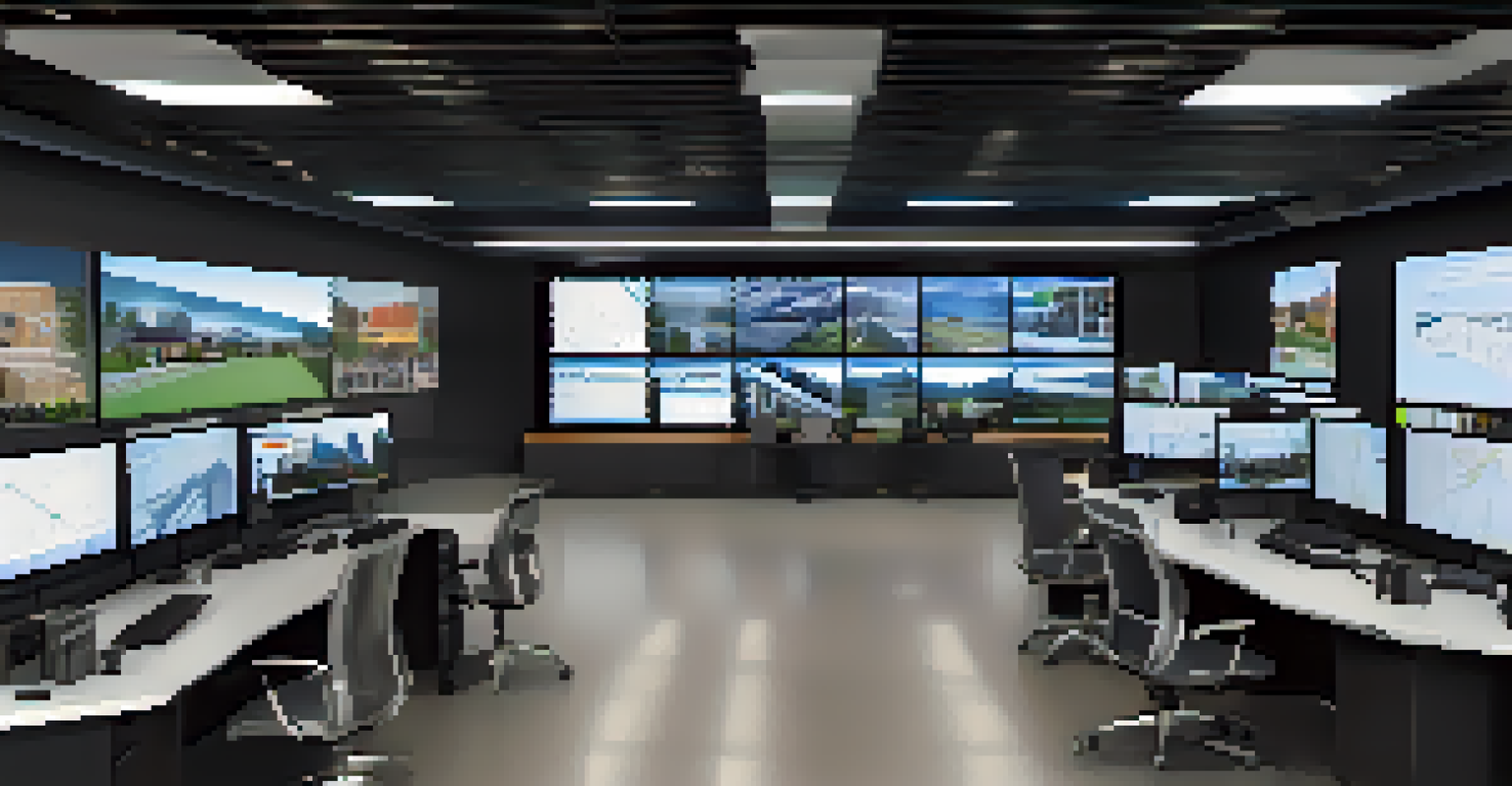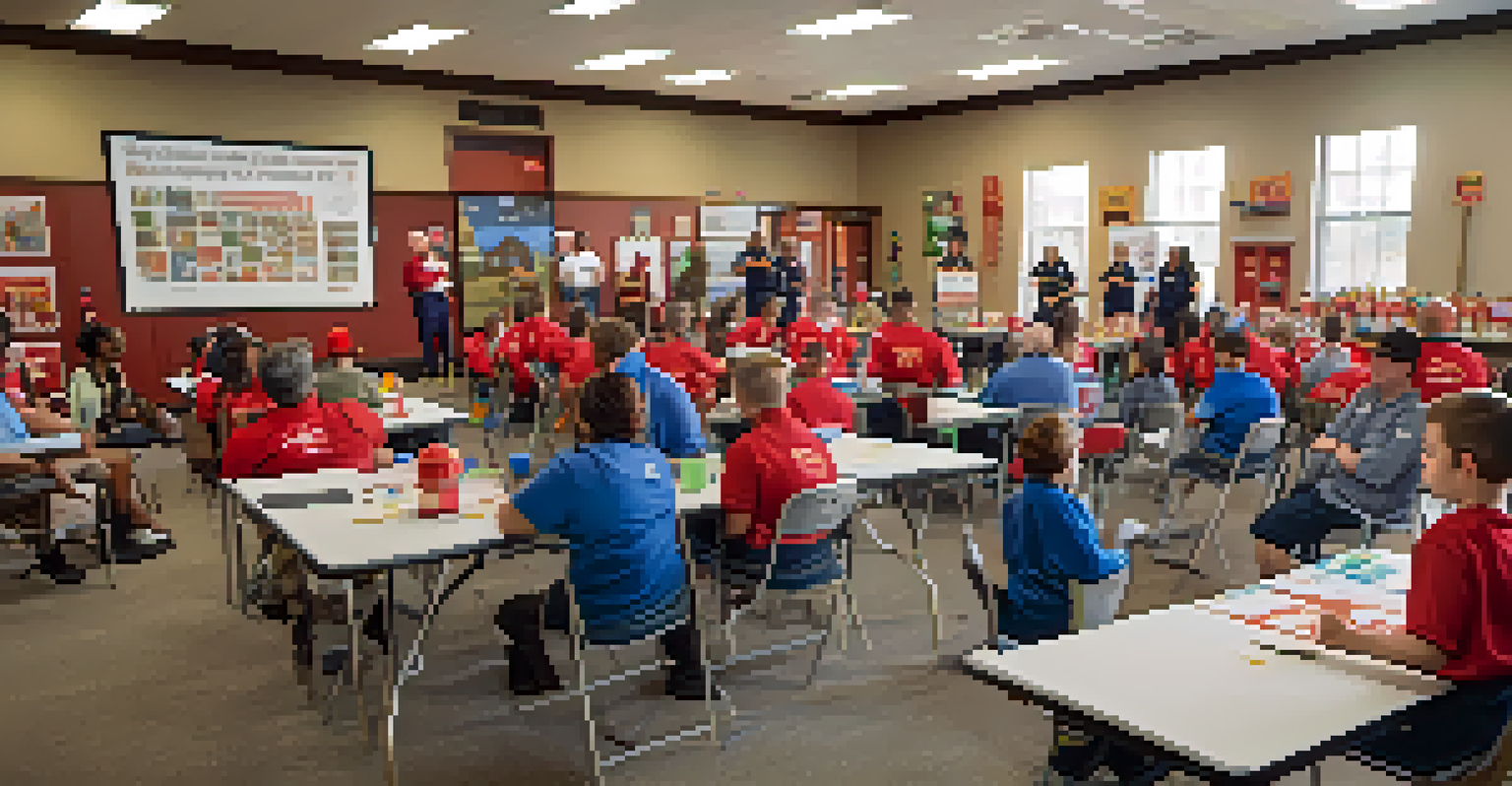Dallas Public Safety Programs: Collaboration with Local Agencies

Understanding the Need for Public Safety Programs in Dallas
Public safety is a cornerstone of community well-being, and Dallas is no exception. As the city grows, so do the complexities of ensuring safety for all residents. Public safety programs serve as a proactive approach to address issues like crime, emergency response, and community health. They aim to create a safer environment through collaboration and resource sharing.
Public safety is not a privilege, it's a right for every community member.
In recent years, Dallas has faced challenges that require innovative solutions. From rising crime rates to public health crises, the need for effective programs has never been more critical. This urgency has led to partnerships between local agencies, community organizations, and residents to tackle these pressing issues head-on. Together, they strive to create a responsive and resilient public safety framework.
Ultimately, understanding the need for these programs sets the stage for effective collaboration. By acknowledging the challenges and the necessity for action, Dallas can foster a supportive network that prioritizes public safety. This teamwork is essential for building trust and engaging the community in the process.
Key Local Agencies Involved in Public Safety Initiatives
Dallas is home to several key agencies that play significant roles in public safety initiatives. The Dallas Police Department, Fire-Rescue, and Health Department are at the forefront, working tirelessly to ensure community safety. These agencies collaborate not only with each other but also with non-profit organizations and local businesses to maximize resources and effectiveness.

Each agency brings unique expertise to the table. For example, the police department focuses on crime prevention and law enforcement, while the fire department specializes in emergency response and public education on fire safety. The health department contributes by addressing public health concerns, including mental health services and disease prevention programs. This diverse collaboration enriches public safety efforts in the community.
Importance of Community Engagement
Active participation from residents in public safety programs fosters trust and strengthens the bond between the community and local agencies.
By leveraging the strengths of each agency, Dallas can implement comprehensive safety strategies that address various aspects of community well-being. This teamwork ensures that all angles are covered, from immediate emergency response to long-term health initiatives. The synergy created through these partnerships is vital for creating a safer environment for all.
Collaborative Programs Promoting Community Engagement
One of the most successful aspects of Dallas public safety programs is their focus on community engagement. Initiatives like Neighborhood Watch encourage residents to take an active role in their safety. These programs empower individuals to collaborate with local law enforcement, fostering a sense of ownership and responsibility within neighborhoods.
Collaboration is the key to success in public safety; together we can build a safer community.
Another notable example is the Dallas Fire-Rescue's Community Education Program, which offers fire safety workshops and emergency preparedness training. By educating residents, the program not only enhances safety but also builds community resilience. Engaging with citizens in this way helps to establish trust and open communication between the community and public agencies.
Community engagement is essential for effective public safety programs. When residents feel involved and informed, they are more likely to participate and support local initiatives. This collaboration ultimately strengthens the bond between community members and public safety agencies, creating a safer and more connected Dallas.
Innovative Technology in Public Safety Collaboration
Technology plays a pivotal role in enhancing public safety programs throughout Dallas. From crime mapping software to real-time emergency response systems, these tools help agencies work together more effectively. By utilizing technology, local agencies can share vital information that improves decision-making and response times.
For instance, the Dallas Police Department employs data analytics to identify crime hotspots and deploy resources strategically. This approach allows them to collaborate with community organizations to address specific issues, such as gang violence or drug-related crimes. The integration of technology fosters a more proactive stance on public safety, rather than merely reacting to incidents after they occur.
Technology Enhances Public Safety
Innovative tools and data analytics improve collaboration among agencies and empower them to respond more effectively to community safety concerns.
Moreover, technology can also facilitate communication between agencies and the community. Mobile apps and social media platforms allow residents to report concerns and receive timely updates on safety initiatives. This two-way communication enhances collaboration and ensures that everyone is informed and engaged in maintaining public safety.
Addressing Mental Health Through Collaborative Efforts
Mental health is a crucial aspect of public safety that Dallas agencies are increasingly recognizing. By collaborating with mental health organizations, the city aims to provide comprehensive support for individuals in crisis. Programs that focus on mental health not only improve individual well-being but also contribute to overall community safety.
For example, the Dallas Police Department has implemented Crisis Intervention Teams (CIT) that are specially trained to handle situations involving mental health crises. These teams work alongside mental health professionals to de-escalate situations and connect individuals with appropriate resources. This collaboration reduces the likelihood of confrontations and promotes a more compassionate approach to public safety.
Addressing mental health through collaborative efforts highlights the interconnectedness of various community issues. By prioritizing mental health, Dallas can reduce the burden on emergency services and foster a more supportive environment for individuals in need. This holistic approach to public safety ultimately benefits everyone in the community.
Community Feedback: Shaping Future Public Safety Programs
Community feedback is invaluable for shaping the direction of public safety programs in Dallas. Local agencies actively seek input from residents to identify concerns and areas for improvement. This collaborative dialogue ensures that programs are tailored to meet the unique needs of the community.
Residents can participate in town halls, surveys, and focus groups to voice their opinions. This engagement not only empowers citizens but also helps agencies to prioritize initiatives that resonate with the community. For example, if residents express concerns about drug-related crime, agencies can allocate more resources to tackle that issue directly.
Mental Health as a Safety Priority
Collaborative efforts to address mental health crises contribute to overall community well-being and reduce the burden on emergency services.
By incorporating community feedback into decision-making, Dallas public safety programs can evolve and stay relevant. This responsiveness fosters trust and shows residents that their voices matter. Ultimately, a collaborative approach that values community input leads to more effective and sustainable public safety strategies.
The Future of Public Safety Collaboration in Dallas
Looking ahead, the future of public safety collaboration in Dallas is promising. As the city continues to grow and evolve, so too will the partnerships between local agencies and the community. Innovations in technology and a focus on holistic approaches to safety will play crucial roles in shaping these efforts.
There’s an increasing recognition of the importance of mental health, community engagement, and data-driven strategies. Dallas is poised to implement programs that not only address immediate safety concerns but also invest in long-term solutions. This forward-thinking approach will help create a more resilient and connected community.

By fostering collaboration and prioritizing the needs of residents, Dallas can lead the way in effective public safety initiatives. The combined efforts of local agencies, community organizations, and residents will help shape a safer future for everyone. Together, they can build a city where public safety is a shared responsibility.